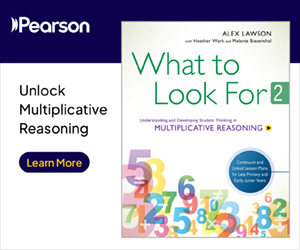A new study takes an innovative look at the experience of children who grow up in a polyamorous household. The results of this research dismantle certain preconceived ideas about families that challenge preconceived ideas about family dynamics within the context of polyamory.
After having conducted 18 semi-structured interviews with children of Quebec polyamorous parents, the research team analyzed the level of emotional closeness these children felt towards their parents' romantic partners, and what these adults represented for them.
The study was initiated by the first lead author, Professor Milaine Alarie of the Institut national de la recherche scientifique (INRS), alongside Morag Bosom, a Ph.D. student in sexology at the Université du Québec à Montréal (UQAM), and Isabel Côté, a professor at the Université du Québec en Outaouais' Department of Social Work and holder of the Canada Research Chair in Third-Party Reproduction and Family Ties. The researchers published an article showcasing their findings in the Journal of Social and Personal Relationships in August 2024.
Important bonds for children
These interviews reveal that children who grow up in a polyamorous household generally like their parents' romantic partners, and may even have special bonds with them.
"Our research has highlighted the quality of the emotional bond between these children and their parents' romantic partners, as well as the benefits of having these adults in their family universe."
Milaine Alarie, Associate Professor at INRS, specialist in gender issues, family dynamics, and sexual diversity
Most participants, especially those between ages 5 and 11, described their parents' romantic partners as people who:
- They could have fun with
- Contributed materially to their well-being
- Took care of them and could be counted on in times of need
- Help expand their circle of friends by introducing them to their own children.
"Many children explained their affection for their parents' partners by highlighting how these people cared for them and supported them materially and emotionally," adds Professor Alarie.
A minority of participants, mainly teenagers and pre-teens, felt that these adults were primarily positive contributors to their parents' lives, and were therefore less likely to develop a personal bond with them. It is worth noting that while they had not developed a particularly significant relationship with their parents' romantic partners, it did not, however, translate into negative feelings towards those adults.
Building "villages" for better growth
Generally speaking, research has shown that for parents and children in nuclear families and those in less traditional family structures, access to quality social support from members of the extended family or the social circle has a positive impact.
Thus, in a polyamorous family, the presence of more trusted adults likely allows children to receive attention from a greater number of trusted people, while exposing them to different realities and worldviews. Parents see this presence as beneficial to their children's social, intellectual, and emotional development.
Seeing as studies estimate that around 1 in 5 people have been involved in a polyamorous or open relationship in Canada and the United States, this new research serves as an important contribution to the literature on contemporary family diversity.
"In light of these results, we wish to reiterate that a better understanding of the reality of families with polyamorous parents is essential for the adjustment of public policies, programs, and laws so that they represent and protect all Quebec families, in all their diversity," concludes Professor Alarie.
While some Canadian provinces, such as Ontario and Newfoundland and Labrador, have been open to legally recognizing multi-parent family, Quebec does not grant legal parental status to more than two people for the same child.
About the paper
Milaine Alarie, Morag Bosom, and Isabel Côté. (2024). "It's someone who means a lot to me, and who means even more to mom": Children's views on the romantic partners of their polyamorous parents. Journal of Social and Personal Relationships. https://doi.org/10.1177/02654075241268545
The research was funded by the Social Sciences and Humanities Research Council (SSHRC) of Canada.













